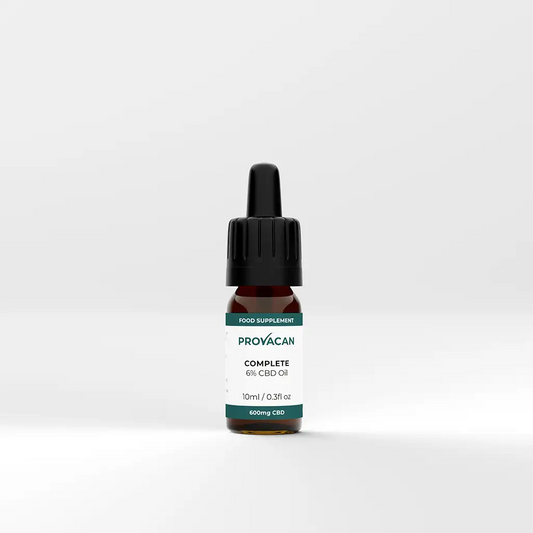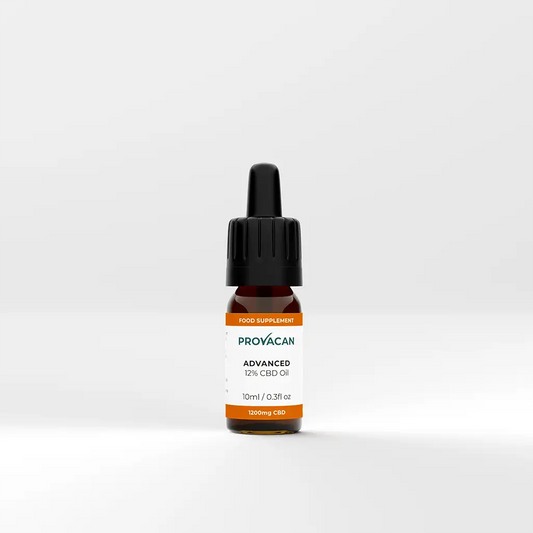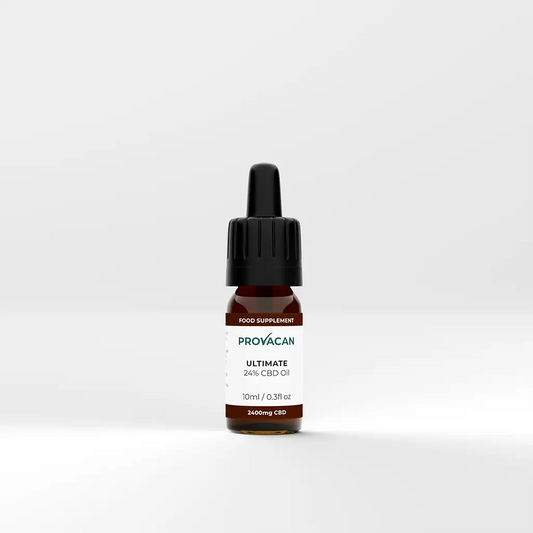Ever since cannabidiol (CBD) oil gained popularity, people have been curious about its effectiveness and potential health benefits. In this article, we will explore the various aspects of CBD oil and its potential positive effects on mood, immune response, pain and inflammation, appetite, and memory. We will also discuss how CBD interacts with the body through endocannabinoids, receptors, and enzymes. Additionally, we will delve into the positive effects of CBD oil, which include its anti-inflammatory, analgesic, anxiolytic, anticonvulsant, and neuroprotective properties. By the end, you will have a better understanding of whether CBD oil truly works and where you can buy it.
Mood
Many individuals turn to CBD oil for its potential mood-enhancing effects. Preliminary research suggests that CBD may have an impact on serotonin receptors in the brain, which are involved in regulating mood. By interacting with these receptors, CBD may help alleviate symptoms of anxiety and stress, promoting a sense of calmness and well-being.
But what exactly is serotonin and why is it so important for our mood? Serotonin is a neurotransmitter, often referred to as the "feel-good" chemical, that plays a crucial role in regulating various bodily functions, including mood, appetite, and sleep. When serotonin levels are low, it can lead to feelings of depression, anxiety, and even contribute to certain mental health disorders.
Research has shown that CBD may have the potential to increase serotonin levels in the brain by inhibiting the reuptake of this neurotransmitter. This means that CBD could help to keep serotonin levels in the brain elevated for a longer period of time, promoting a more stable and positive mood.
It is important to note, however, that while CBD shows promise in potentially improving mood and mental well-being, more research is needed to fully understand its effects. Factors such as dosage, individual differences, and the presence of other medications or substances can all influence how CBD interacts with the serotonin receptors and ultimately affects mood.
Immune Response
Another area of interest is CBD's potential influence on the immune system. Studies indicate that CBD may have immunomodulatory properties, meaning it could help regulate immune responses. This is particularly relevant in conditions where the immune system is overactive, such as autoimmune diseases. CBD's interaction with receptors and cells in the immune system may help reduce inflammation and support overall immune function. However, further research is necessary to confirm these findings.
One fascinating aspect of CBD's potential immunomodulatory properties is its ability to interact with the endocannabinoid system (ECS). The ECS is a complex network of receptors and molecules found throughout the body, including the immune system. It plays a crucial role in maintaining homeostasis, or balance, within various bodily functions. CBD has been found to interact with the ECS, specifically with CB2 receptors, which are primarily located in immune cells.
When CBD interacts with CB2 receptors, it can potentially modulate immune responses by influencing the production and release of various immune cells and molecules. For example, studies have shown that CBD can inhibit the production of pro-inflammatory cytokines, which are molecules that contribute to inflammation. By reducing the production of these molecules, CBD may help alleviate inflammation associated with autoimmune diseases and other immune-related conditions.
Pain and Inflammation
Chronic pain and inflammation can be debilitating for many individuals. The constant discomfort and limited mobility can greatly impact one's quality of life. Thankfully, there is growing interest in the potential benefits of CBD oil in alleviating these symptoms.
Derived from the cannabis plant, CBD oil has gained attention for its potential analgesic and anti-inflammatory properties. It is believed that CBD may interact with receptors in the nervous system and immune cells, modulating their activity to reduce pain and inflammation.
Studies have shown promising results, suggesting that CBD oil could be an effective alternative or complementary treatment for conditions such as arthritis, multiple sclerosis, and fibromyalgia. Arthritis, for example, is a chronic condition characterized by joint inflammation and pain. CBD oil has shown potential in reducing both the severity of pain and the inflammation associated with arthritis, providing much-needed relief for those affected.
Multiple sclerosis, on the other hand, is a neurological disorder that causes nerve damage and leads to various symptoms, including pain and muscle spasms. CBD oil has shown promise in reducing these symptoms, potentially improving the quality of life for individuals living with multiple sclerosis.
Fibromyalgia, a condition characterised by widespread musculoskeletal pain, fatigue, and sleep disturbances, is another condition that could potentially benefit from CBD oil. Research suggests that CBD may help alleviate the pain and improve sleep quality in individuals with fibromyalgia, offering a glimmer of hope for those who have long struggled with this debilitating condition.
While the potential benefits of CBD oil in managing pain and inflammation are promising, it is important to note that more studies are needed to determine its efficacy and safety. The existing research provides a strong foundation for further exploration, but it is crucial to conduct rigorous clinical trials to fully understand the potential of CBD oil as a treatment option.
As the scientific community delves deeper into the world of CBD, it is hoped that this natural compound will unlock new possibilities in pain management and inflammation reduction. The potential to improve the lives of countless individuals suffering from chronic pain and inflammation is a tantalising prospect, and CBD oil may just be the key to unlocking a brighter future.
Appetite
For individuals struggling with appetite issues, CBD oil may offer potential benefits. CBD's interaction with receptors in the endocannabinoid system, which plays a role in regulating appetite, has sparked interest in its ability to stimulate or suppress appetite. While some studies suggest that CBD may increase appetite in certain circumstances, others indicate that it may have the opposite effect. Further research is necessary to understand how CBD oil affects appetite and its potential implications for weight management and eating disorders.
Memory
Memory function is crucial for daily life and overall cognitive health. Some studies suggest that CBD oil may have positive effects on memory. CBD's interaction with brain receptors involved in memory consolidation and retrieval has piqued researchers' interest. Additionally, CBD's potential anti-inflammatory and neuroprotective properties may contribute to its influence on memory. However, more research is needed to fully understand CBD's impact on memory and cognitive function.
How Does CBD Interact with the Body?
To better grasp the effects of CBD oil, it is important to understand how it interacts with the body. CBD interacts with the endocannabinoid system (ECS), a complex network of receptors and compounds involved in regulating various physiological processes. The ECS consists of endocannabinoids, receptors, and enzymes.
Endocannabinoids
Endocannabinoids are naturally occurring compounds in the body that bind to cannabinoid receptors. These compounds help regulate functions such as pain sensation, mood, and immune response. CBD, as an external cannabinoid, can interact with these endocannabinoids to modulate their effects.
Receptors
CBD interacts with two main types of receptors in the ECS: CB1 and CB2 receptors. CB1 receptors are primarily found in the central nervous system, while CB2 receptors are predominantly located in the immune system. By interacting with these receptors, CBD may influence various physiological processes, including pain perception, inflammation, and immune functions.
Enzymes
Enzymes play a crucial role in breaking down endocannabinoids after they have fulfilled their function. CBD can inhibit specific enzymes, such as fatty acid amide hydrolase (FAAH), which is responsible for breaking down anandamide, a key endocannabinoid. By inhibiting these enzymes, CBD can potentially increase the levels of endocannabinoids in the body, extending their effects.
Positive Effects of CBD Oil
In addition to its potential impact on mood, immune response, pain and inflammation, appetite, and memory, CBD oil may offer several positive effects that make it appealing to individuals seeking alternative remedies.
Anti-inflammatory
CBD has shown promise in reducing inflammation, making it an attractive option for individuals with inflammatory conditions such as arthritis, inflammatory bowel disease, and acne. By interacting with receptors and immune cells, CBD may help alleviate inflammation and associated symptoms.
Analgesic
CBD's potential analgesic properties make it an interesting candidate for managing pain. By modulating the body's pain response through interactions with receptors in the nervous system, CBD may offer relief for individuals dealing with chronic pain conditions.
Anxiolytic
Research suggests that CBD may have an anxiolytic effect, meaning it may help reduce anxiety and promote relaxation. CBD's interaction with receptors involved in anxiety regulation may contribute to its potential anti-anxiety properties. However, more studies are needed to fully understand CBD's efficacy in treating anxiety disorders.
Anticonvulsant
CBD's potential as an anticonvulsant has garnered significant interest, particularly in the treatment of epilepsy. Clinical trials have indicated that CBD may be effective in reducing seizure frequency and severity in certain types of epilepsy. However, further research is necessary to fully understand CBD's anticonvulsant properties.
Neuroprotective
Emerging evidence suggests that CBD may have neuroprotective properties, potentially offering benefits for neurodegenerative conditions such as Alzheimer's and Parkinson's diseases. CBD's interaction with receptors, reduction of inflammation, and antioxidant effects may contribute to its potential neuroprotective effects. However, more research is needed to validate these findings.
Does CBD Oil Work?
Considering the various potential positive effects of CBD oil on mood, immune response, pain and inflammation, appetite, memory, and its interaction with the body's endocannabinoid system, it is clear that CBD oil holds promise as an alternative remedy. Does CBD work for everyone? How long does CBD take to work? It varies from person to person and it is important to note that more research is necessary to fully understand its effects, optimal dosage, and long-term safety. If you are considering using CBD oil, it is advisable to consult with a healthcare professional who can provide personalised guidance based on your specific needs and medical history.
Buy CBD Oil
If you are looking to buy CBD oil, it is crucial to choose a reputable brand that adheres to high-quality standards. Look for products that have undergone third-party testing to ensure their potency and purity. Additionally, consider factors such as the source of the CBD, extraction method, and other ingredients. Online retailers and specialized CBD stores are common avenues for purchasing CBD oil. However, it is advisable to do thorough research and read customer reviews before making a purchase.
While the current research indicates the potential positive effects of CBD oil, further studies are needed to fully comprehend its mechanisms of action and efficacy in various conditions. As with any supplement or alternative remedy, it is essential to approach CBD oil with caution and seek guidance from healthcare professionals. By staying informed and making informed choices, you can explore whether CBD oil works for you.






